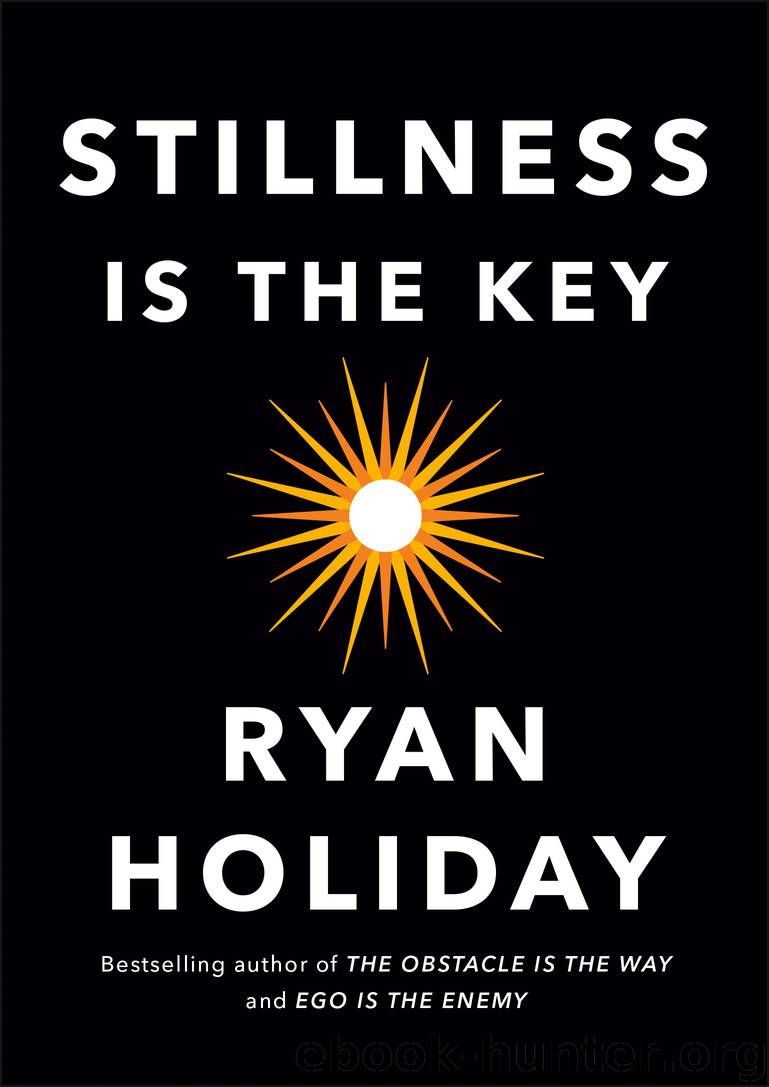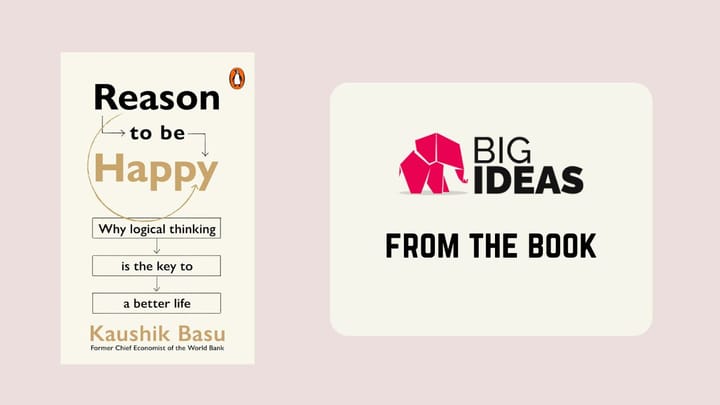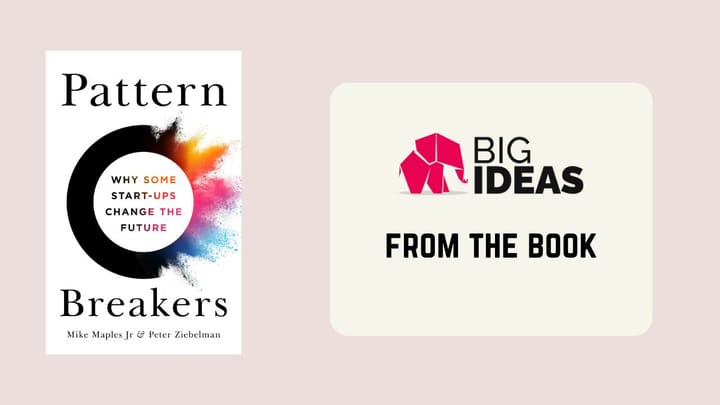Stillness is the key – Ryan Holiday

In Stillness is the Key, the book that completes the trilogy that began with The Obstacle is The Way and Ego is the Enemy, Ryan Holiday argues that stillness is the key to being better at anything you do. Holiday looks at Buddhism, Stoicism, Epicureanism, Christianity, Hinduism, and countless other philosophical schools and religions and shows that it’s all but impossible to find one that doesn’t venerate this inner peace—this stillness—as the highest good and as the key to a thriving, meaningful life. “And when basically all the wisdom of the ancient world agrees on something,” Holiday writes, “only a fool would decline to listen.”
The Story
In Seneca’s time, to reach stillness meant contending with the cacophony of disturbances that filled the streets of Rome: carriages rumbling through the stone streets; carpenters at work; vendors shouting their offerings; children at play; dogs barking. Today, we can add to that car horns, cell phone alarms and notifications, stereos or headphones, jackhammers, espresso machines, and airplanes. The news, with its narrative of crisis after crisis, finds us on whichever device we happen to be staring at. Emails bombard us. Requests and obligations pour in. We’re completely overstimulated, overscheduled, and overwhelmed. How does anyone find time to think? To engage in meaningful work? to detach and relax?
History proves that it is from stillness that new insights and ideas spawn. It is with stillness that perspective sharpens. It is in stillness that the ball slows down so that we might hit it. Stillness allows us to persevere. To succeed. It is the key that unlocks genius, happiness, and meaning.
Work is what horses die of. Everybody should know that.
The mind is restless, Krishna, impetuous, self-willed, hard to train: to master the mind seems as difficult as to master the mighty winds.
Don’t think. Hit. Don’t overanalyze. Do the work.
When the mind is clear and still, incredible things happen.
If we miss contentment, then that is often our own fault—and the fault not of our bodies but of our souls
We must choose to drive out anger and replace it with love, gratitude, and purpose. Our stillness depends on our ability to slow down, choose not to be angry, and run on different fuel. “Fuel that helps us win and build doesn’t hurt other people, our cause, or our chance at peace.”
In the face of the Sublime, we feel a shiver . . . something too large for our minds to encompass. And for a moment, it shakes us out of our smugness and releases us from the deathlike grip of habit and banality.
Work done for a reward is much lower than work done in the Yoga of wisdom. Set thy heart upon thy work, but never on its reward. Work not for the re- ward; but never cease to do thy work.
Philosopher and the Poet
The philosopher and the poet see the world the same way and engage in the same pursuit: the study of “wonder.” And so must we. While stillness seems so rare and fleeting in our busy lives, the world supplies us with an inexhaustible amount of it. We’re just not looking. We’re not stopping to see all of it. Any of it, for that matter.
Go outside. Take a walk. Look around. Pay attention. Be curious. Marvel. Wonder. Bathe in the beauty that surrounds us, always.
Work will kill you
When we’re running on empty, when we’re stretched too thin, when we’re utterly overworked, clear thinking can’t possibly happen, and good decisions can’t possibly be made. So we make mistakes that we then have to try to fix. We destroy relationships that we then have to try to repair. We burn out and fade away.
Let Go
Have you ever noticed that the more we want something or the more insistent we are on a certain outcome, the more difficult it can be to achieve it? When you try to hit a golf ball as hard as you possibly can, when you really want to belt it down the fairway, that’s exactly when you shank it into the woods, snap-hook it into the water, or barely nudge it out of the tee box.
That state? Stillness
It’s what we need in life, in the arts, in sports—the ability to let go, to loosen up, to release the tension that is our obsession with outcomes. Instead, if we reel it in, focusing on the individual steps, embracing the process, and giving up the chase, we’ll think better and clearer because we aren’t thinking so hard.
And suppose that through letting go, we do find success? When a student hit a bull’s-eye, Kenzo would say, “Go on practicing as if nothing happened.” The closer one is to mastery, the less they care about results. They’re consumed by the process and the actions they control.



Comments ()